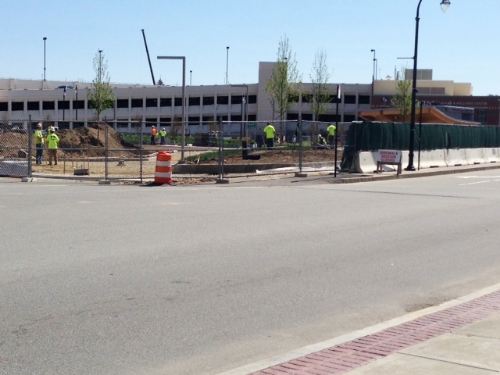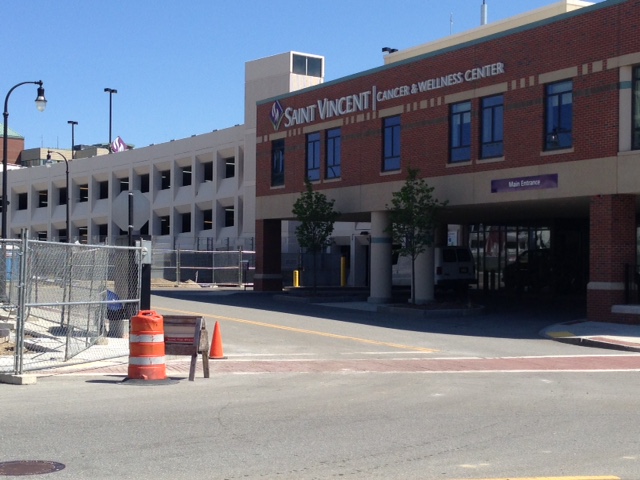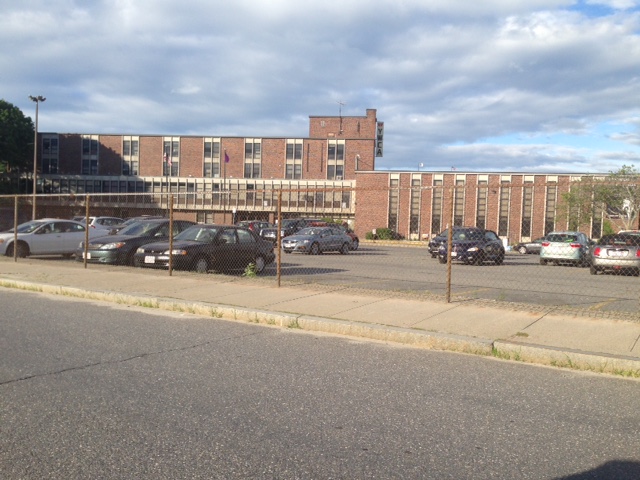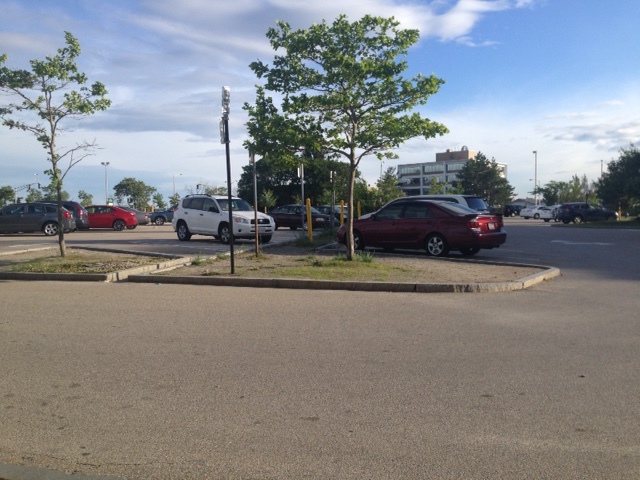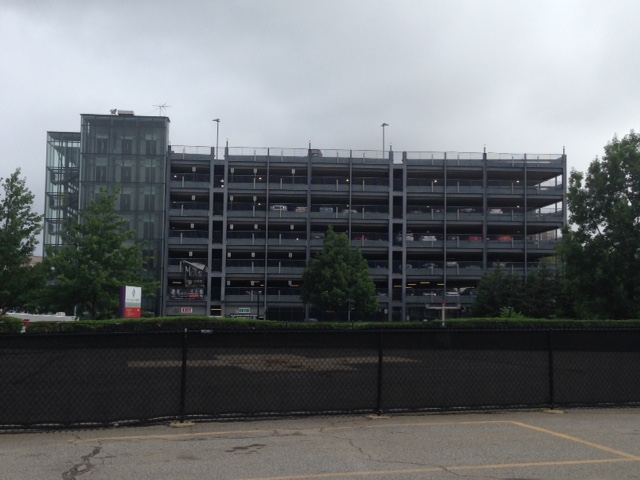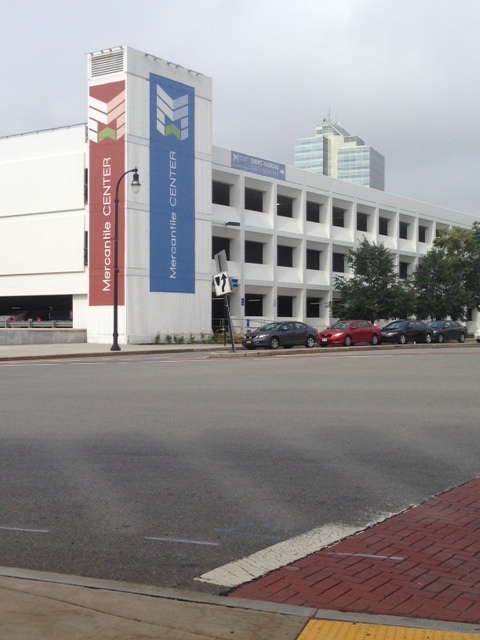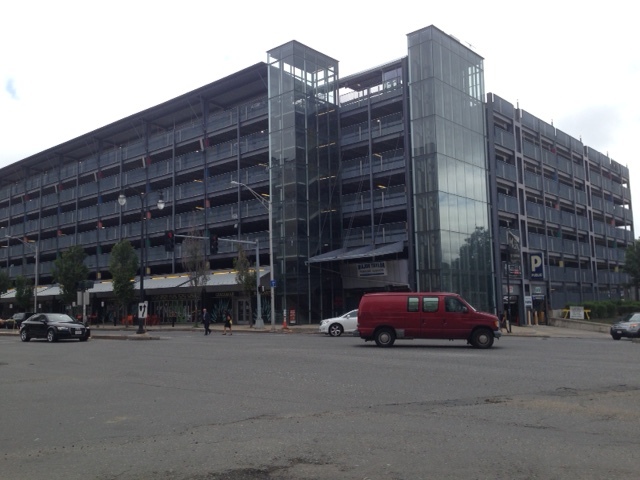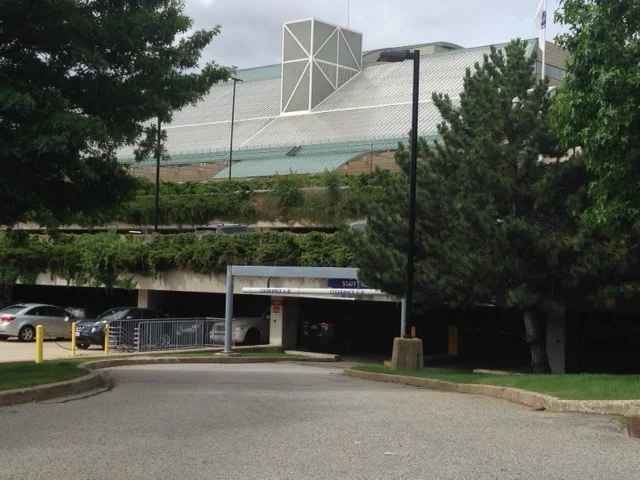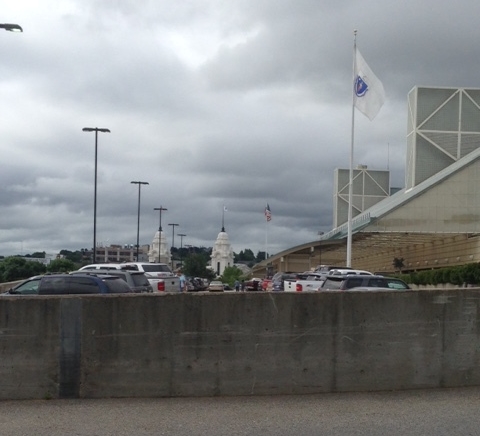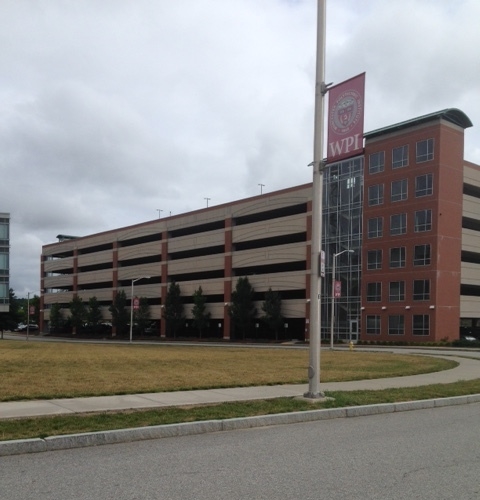Aah, Worcester,
Worcester's invitation: Come down and PARK!!
A good sociologist observes the social world carefully to track repeatable patterns in the data. It is fairly easy to note this pattern: All major downtown mega-development projects for the past fifty years come hand-in-hand with their own massive adjacent parking facilities. The Worcester Center Galleria, a project that boasted the largest parking garage in the world with 4300 spaces, set the trend for this model in our city. So, here's the impact of having a parking garage downtown: 1) These mega-projects with parking garages promote the action of driving to the destination, parking, entering a building and then leaving to your car. We have already shown the deadened sidewalk life that results from this model. 2) Think of the waste of space housing so many cars when we could be using the same land mass for more productive uses - housing of people, retail, educational, cultural.
Where, oh where, is our needed density, Worcester?
How can we raze large parcels of our physical infrastructure for these kinds of surface level parking lots? Here's another way to think about this mistake: Who enjoys Provincetown in the summer? Who also knows how difficult it is to park there? But can you imagine the residents and businesses addressing this "problem" with tearing down a couple of blocks of its buildings? Of course not! It is density, the interesting and eclectic packed uses within buildings that draw people to the center in the first place! We can't destroy what potentially draws people to an area. People find a way to get to Provincetown despite the challenge to find parking. They walk, take the ferry, bike, park outside the downtown and take the bus to the center.
Do you remember a couple of months ago how the knitters at the senior center described a hopping downtown Worcester when no one drove there? People took the bus and even the trolley from Providence Street. People walked to downtown. One could argue back that in those days, families didn't have cars. Like it or not, we now live in an automobile age where we are dependent on private vehicles to get us from place to place.
The truth is: If you build for cars, cars will show up at our doors.
Over 4 acres of precious downtown Worcester land serve as dedicated space for municipal parking garages, metered spaces and surface lots, housing more cars than people in the core area. Our parking problem especially downtown is that we are over-saturated with cheap parking, inducing the demand and expectation for more parking. We must be strategic with the operation of the current parking stock we now have and at the same time, look at parking from a wider angle lens. Building the infrastructure for walking and biking and increasing reliable and more frequent public transportation options are ways to alleviate the "car housing" pressure.
Let's just stop building more garages and taking down more buildings for surface level lots for now and think long term and strategically. A needed master parking plan should place parking into a larger context of building a vibrant, people-filled core and can consider the following:
- Better use of current parking facilities: Dan Burden told us that we were giving away our parking. Economically healthy cities don't offer visitors cheap parking as we do here. We may consider increasing the costs to park at metered spaces and municipal lots to a level that supports the ongoing maintenance of our parking facilities and provides cash flow to enhance our overall transportation infrastructure. Where is our creative use of current technology? In Boston, I have parked at meters where I just swipe my credit card. Easy and no fishing around for change. What about a real time app that can inform drivers where there are available spaces in lots and at metered spaces? The technology is probably available. What would it take to make use of it?
- Pedestrian accessibility. Road diets, increased destination signage through an upcoming Wayfinding Initiative and integrated walkways make it easier and safer for walkers to get from place to place. Think about walking from Union Station to city hall and how hard it is to cross Foster Street. What happens when we don't make walking safe and enjoyable? People decide to drive and park instead!
- Biking infrastructure: Every time I ride my bike from the west side to the library downtown, I think I'm taking my life in my own hands. I would like to see safe areas to bike that radiate out from the core of downtown. What if we increased the designating of dedicated bike lanes and even cut down the unsafe speedways of some of our major arterials (think Major Taylor Boulevard, for example) to include dedicated lanes? Bike racks set up in strategic spaces in the downtown and throughout the city take up much less precious space than parking garages for cars! Once we build this infrastructure (NYC showed it can be done cheaply and quickly ), then we may have potential demand for organizing a city wide bike share program in the future.
- Increased public transportation emphasis: What would it take for residents to want to take the bus around town? In this day and age of private automobiles, could that be at all possible? Could we have "induced demand" for bus service? More research for this year! There used to be a trolley service in Worcester. Would this again be in any way feasible? I was blown away when I visited Portland, Oregon in 2008 with my two little kids. We got all around the city on streetcar, bus and and light rail, ALL FREE (as in NO FARE) in the downtown core. Why take the car and park when you can get around for free?
We have already demonstrated in this blog how our emphasis on building "park and enter" mega projects cum parking garages has resulted in a deadened street life. It's time for some real soul searching here. Do we want to continue to be an auto-centric, sprawling suburbanized city or do we want to stop, rethink and envision a different path?
A Collage of Worcester Parking Garages
See how many you can identify!!


